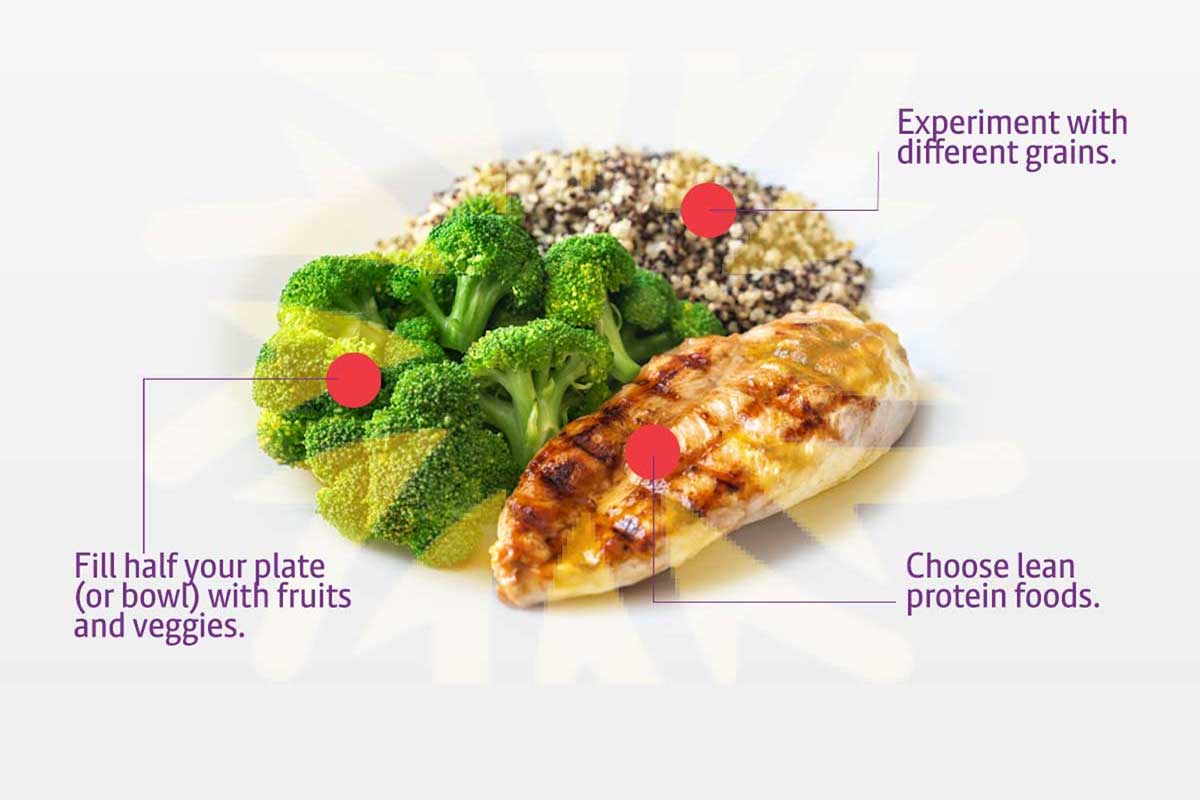Universal nutritional guidelines, with a cultural twist – celebrating healthy eating and diversity during National Nutrition Month
March is National Nutrition Month®, an annual campaign created by the Academy of Nutrition and Dietetics, and this year’s theme is “Personalize Your Plate.”
It’s a celebration of culture, highlighting how there is no one-size-fits-all approach to nutrition and health—a concept that WellSpark actively embraces throughout our programs.
As we discussed in our prior post, WellSpark’s Commitment to Cultural Competency – Understanding Workplace Culture and Beyond, we believe the best way to help people make lasting changes to their health is to make sure our coaching is relevant to their culture and life. So, topics like nutrition education need to focus on what a participant eats in their everyday life, not just lessons about the standard programming of the western American diet.
That said, there are some universal truths about how to create a healthier diet—or healthier plate—that apply to everyone:
- Fill half your plate with fruits and veggies. Get creative with produce by trying an assortment of colors and textures.
- Experiment with different grains. Try substituting whole grains for refined grains in recipes.
- Choose lean protein foods. Vary your choices to include seafood, beans, peas, and lentils, as well as eggs, lean cuts of meat and poultry prepared in a healthful way, such as baked or grilled instead of fried.
- Complete your meal with dairy. Include low-fat or fat-free options like milk, yogurt, cheese, calcium-fortified soymilk, or lactose-free milk.
Keep things fresh by trying different meals
Following the simple guidance outlined above can not only make a big difference in a person’s overall health, but it can be fun and flavorful too. Here are some delicious ideas to change up your breakfast, lunch, and dinner that reflect some of the many cultural cuisines found in our own communities. These healthy alternatives highlight the importance of cultural competency in coaching and the amazing range of options we have for personalizing our plates, together.
| Latin America | Asian Indian | Filipino | |
|---|---|---|---|
| Breakfast | Scrambled egg with tomato, onion and peppers in a corn tortilla or arepa with cheese | Besan cheela (savory pancakes made with chickpea flour and vegetables) with extra tomatoes and spinach on the side, and a cooked egg | Arroz caldo (chicken and rice porridge with ginger and garlic) with boiled egg, sautéed leafy greens, and fruit |
| Lunch | Bean and cheese empanada (stuffed pastry) with a mango and jicama salad | Rajma (kidney beans in onion, tomato sauce and spices ) with brown rice and a green, leafy vegetable of your choice | Kare-kare (beef oxtail soup with peanut butter and vegetables) with steamed brown rice and mango |
| Dinner | A cup of sancocho (meat and root vegetable stew) with green salad and yogurt and berries for dessert | Laal maas (lamb in hot garlic sauce) with brown rice, vegetable raita (yogurt dip), and a nonstarchy vegetable like cauliflower | Ginisang gulay (sautéed vegetables), with shrimp, steamed brown rice and melon |
Healthy alternatives highlight the importance of cultural competency
Learn more about National Nutrition Month
National Nutrition Month is an opportunity for everyone to learn about making informed food choices and developing healthful eating and physical activity habits that they can put to use throughout the year.
For more information about the annual event, you can visit
https://www.eatright.org/food/resources/national-nutrition-month
We also encourage you to check out our recent post on culture at
https://blog.wellsparkhealth.com/wellsparks-commitment-to-cultural-competency-understanding-workplace-culture-and-beyond/
